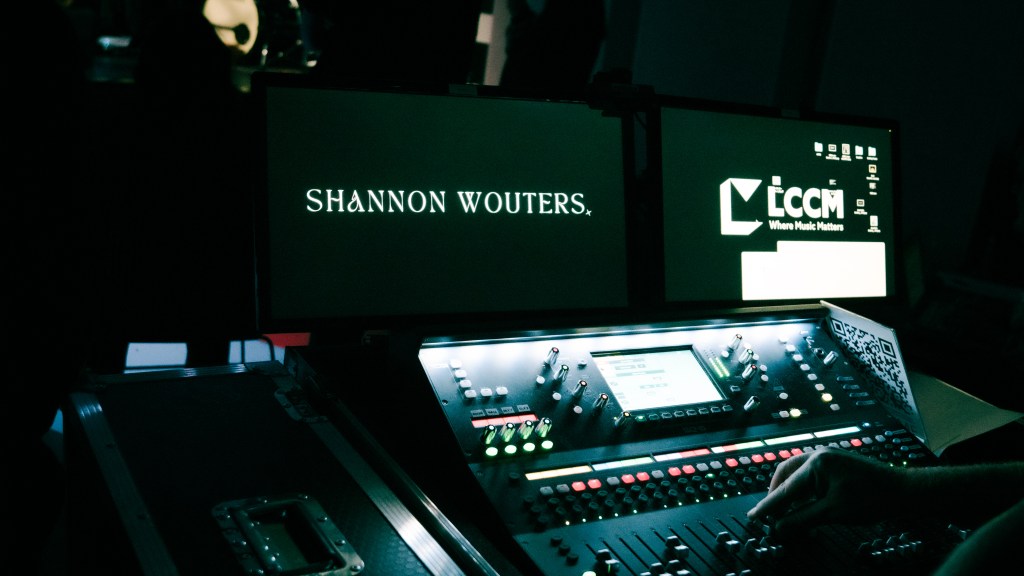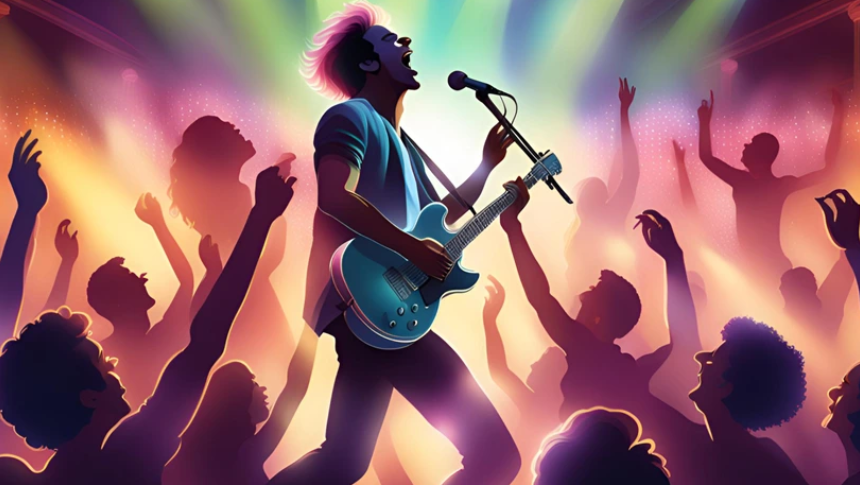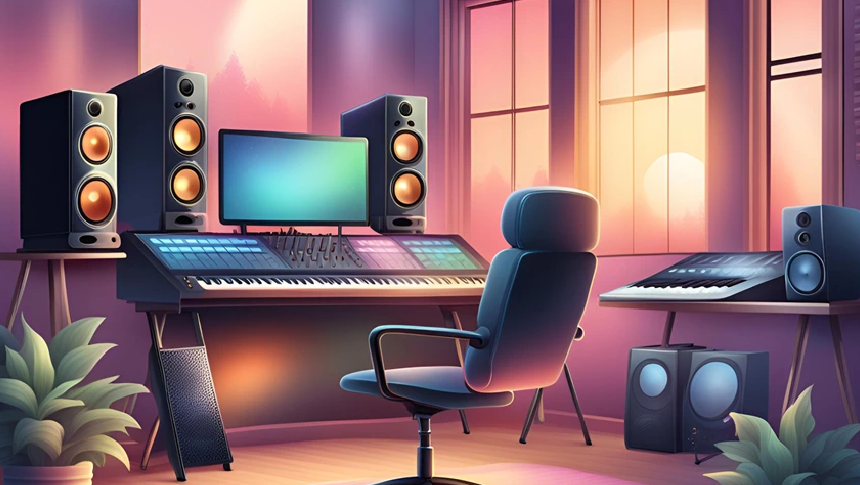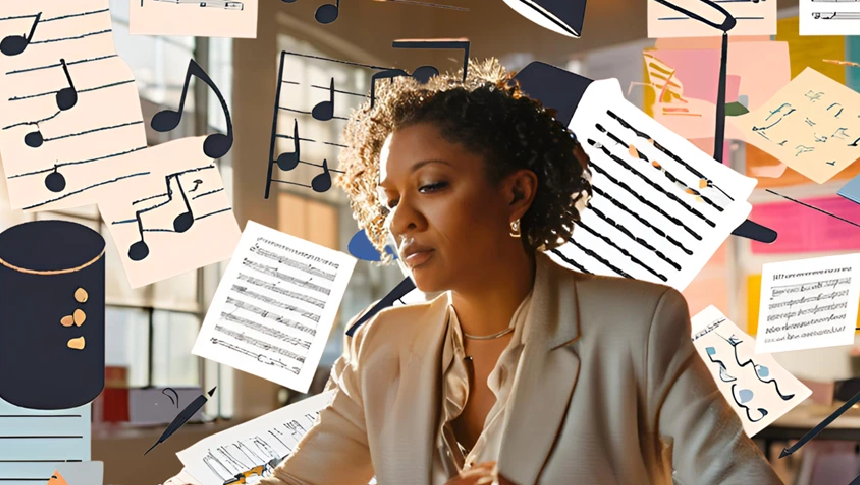AI in music has become something of a hot topic in recent months. Technology as a whole has shaped the music industry in ways we couldn’t have predicted, from virtual reality concerts to creating our very own music studios at home, but AI music? That’s an entirely different ball game.
From composition and sound design to mastering and distribution, AI is revolutionising the music industry, providing tools that simplify complex processes and unlock new creative possibilities.
This blog will explore AI’s impact on music production, its applications, benefits and challenges, and offer a glimpse into the future of AI in this field.
What is AI in Music Production?
In music production, AI refers to using machine learning, neural networks and other intelligent algorithms to analyse, compose and produce music. AI can recognise patterns in musical elements like rhythm, melody and harmony, which can help artists in their creative and technical processes.
AI-powered platforms analyse huge amounts of datasets to create original compositions, automate mixing and mastering and even restore and enhance older recordings.
How Does AI Affect Music Production?
AI has made its mark on the music world, and the future of music looks very exciting. It’s made it much easier for musicians to tackle the more technical side of creation and has made it much more accessible to a wider audience.
You no longer need to spend years learning how to use expensive studio equipment and how to mix and master. Now AI can do it all for you, opening the door to many more musicians who didn’t have the means before.
AI means you can focus more on the creative side of things. You can experiment with your sound and use helpful suggestions it provides, like chord progressions and alternative melodies.
However, its rise in popularity has also caused a bit of a stir with concerns regarding human creativity and intellectual property, but we’ll delve into that a little more later.
Understanding AI in Music Production and Composition
AI in modern music production is being used all over the industry, especially when it comes to restorative work like isolating vocals and layering them on different instruments to make new compositions. Additionally, platforms like AIVA and Amper Music allow artists to create music with hundreds of style options and the ability to easily customise tracks.
Other ways artists and composers are using AI include generating royalty-free background music for videos, podcasts and social media. These tools allow creators to tailor tracks by adjusting mood, tempo and genre.
There are also a number of other AI music tools that can craft intricate melodies, harmonies and rhythms too, allowing musicians to explore new realms of music entirely.
How is AI Impacting the Music Industry?
AI is slowing impacting a number of different industries and is currently being used all over the music industry. But how big is its impact on music production and is this a good thing?
Artists and musicians are using AI to streamline the entire process, creating unique sounds along the way. Platforms such as Spotify use AI to personalise listening experiences that can help you find even more music specific to your taste.
But as with all things, there is also a downside. Some people are concerned with the ethics of using generative AI to produce music, as this can infringe on copyright issues and proper licensing. As more people use AI to make music, the market becomes quickly more saturated, making it harder for human artists, especially smaller ones, to stand out.
Despite these concerns, AI music tools are expected to create significant revenue growth and redefine the entire industry.
Top 5 AI Tools for Music Production
If you’re interested in what AI can do to spruce up your sound, have a look at the list below of different music production tools you can try out.
1. Amper Music
Amper Music is a popular AI music creation tool that lets artists compose original music by selecting a genre, mood and length. Amper’s AI system then generates tracks based on these selections, so artists have an accessible way to explore new sounds and compose quickly.
2. LANDR
If you need help with mixing and mastering, LANDR is the tool for you. This AI-powered tool helps artists create studio-quality audio without the expensive hardware by applying precise audio adjustments, equalisation and compression based on audio type and style.
3. WavTool
WavTool is a digital audio workstation (DAW) powered by AI that assists in the music creation side of things. It offers beat-making, instrument selection and other capabilities, enabling artists to produce complete tracks without needing a physical studio setup.
4. AIVA (Artificial Intelligence Virtual Artist)
AIVA is another AI tool that specialises in composing classical music, although it can work across genres. AIVA uses neural networks to compose, arrange and orchestrate original pieces, making it particularly useful for background scores and film soundtracks.
5. Ecrett Music
Ecrett Music helps content creators, game developers and amateur musicians generate royalty-free music. It offers a simple interface where users choose settings for mood, genre and length, and it ca even generate a custom track tailored to your needs.
Benefits and Challenges of AI in Music Production
There are lots of good things to say about AI music production, but that also naturally comes with its challenges too. Let’s explore the benefits and challenges of AI below:
Benefits
- Enhanced efficiency: AI streamlines time-consuming processes like mastering, allowing artists to produce music faster and focus on creative work.
- Accessibility: Beginners can use AI tools to create professional-quality audio without needing extensive technical knowledge or costly equipment.
- Creative inspiration: AI can inspire artists and spark new creative ideas by generating chords, melodies or even entire tracks.
Challenges
- Creativity concerns: Some worry that AI-generated music could undermine the role of human creativity in music.
- Copyright issues: Determining ownership rights for AI-generated music remains complex, especially when the AI uses databases of human-made compositions for training.
- Job displacement: Automation in audio engineering tasks like mixing and mastering could reduce demand for these specialised skills.
The role AI Plays in Modern Music Production
AI has become an almost essential partner in music production, offering creative possibilities that reshape how music is crafted and developed. Let’s take a closer look at the three major ways AI is impacting modern music production.
1. Mixing and Mastering
AI-assisted mixing and mastering tools automate the technical aspects of sound processing, making sure you get a high-quality output. With AI, independent musicians can now achieve near-professional sound quality, something that would have previously taken a lot of time and money.
2. Song Restoration
AI algorithms can restore old recordings by removing unwanted noise, enhancing clarity and balancing audio. This technology has opened up new possibilities for remastering classic records and preserving musical heritage.
3. Music Inspiration
AI can help artists overcome creative blocks by generating melodies, suggesting chord progressions or even building entire backing tracks. This allows musicians to explore new directions and add layers to their compositions.
The Future of Music Production with AI
So, what does the future look like with AI being a staple character in the world of music?
It’s looking like AI will likely continue becoming increasingly popular with music artists. This will give them more options in sophisticated tools and allow them to go deeper with their creations and compositions.
Musicians and producers may become increasingly reliant on AI to streamline tasks and make creative decisions, blending human intuition with machine precision.
While AI will never replace human artistry, it has become an influential partner in modern music production, with the power to enhance creativity and give independent artists more capabilities to work on their music. Ethical concerns will always remain, and rightly so, but the future of music doesn’t look like one without AI. Embracing its unique benefits could help steer your career in a brighter direction. But ultimately, the choice is yours.
FAQs
1. How is AI used in music creation?
AI in music creation works by analysing genre patterns to produce music that matches the style you’re looking for. It can create melodies, harmonies and beats based on user input or pre-set genre guidelines, allowing artists to shape music that resonates with listeners or explore new sounds that might be otherwise time-intensive to craft.
2. Is AI-generated music copyrighted?
The copyright status of AI-generated music varies by country and is still under debate. AI’s complexity raises questions about ownership, originality and the potential need for updated laws that specifically address music produced with AI.





